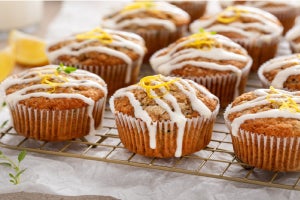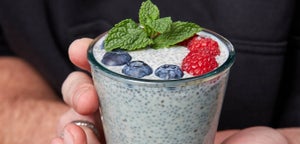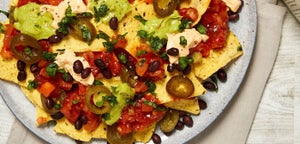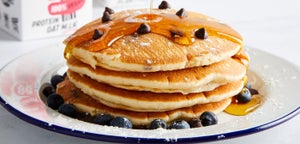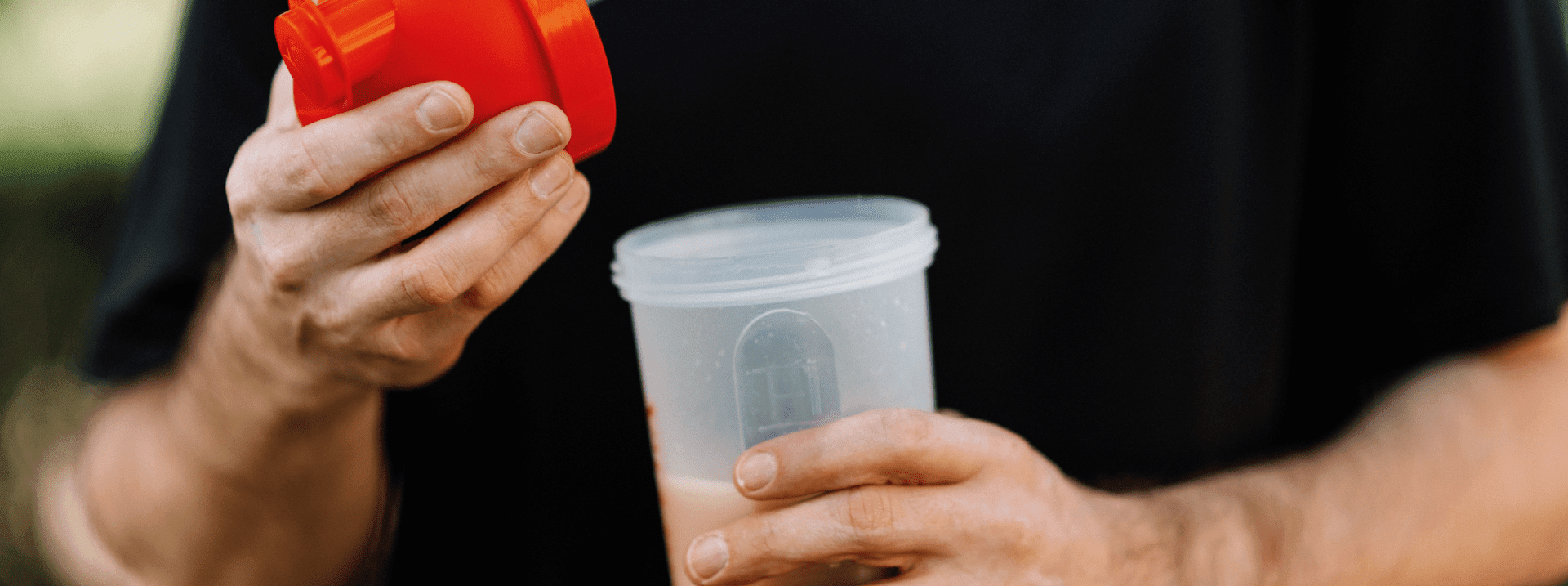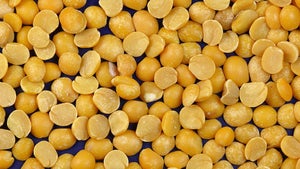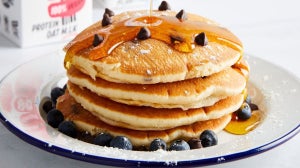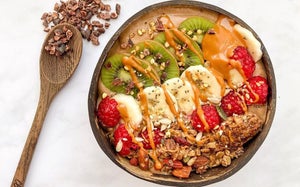
Many vegans say the same thing. They’d be extremely rich if they had a penny for every time someone asked where they get their protein from! But perhaps it’s not such a silly question. A vegan diet contains only plants like vegetables, grains, nuts and fruits, and foods made from plants. They don’t eat any foods that come from animals like meat, dairy products and eggs, or anything from fish.
Yet a quick online search shows that the top high protein foods are white meat poultry, milk, cheese, yogurt, eggs, pork tenderloin, lean beef and seafood! So where do vegans get the dietary protein that their bodies need? It’s an important question, particularly if you’re thinking of going vegan, or you’re a vegetarian who might be taking the next step to veganism.
A widely-held belief among non-vegans and non-vegetarians is that vegetarian and vegan diets simply can’t provide enough protein. But many experts now agree that a balanced meat-free diet can provide all the nutrients you need including protein.1
What is protein and how much do you need?
Protein is a vital part of your nutrition. It makes up about 17% of your weight and is the main component of your muscles, skin, eyes, hair, nails and internal organs especially your heart and brain. According to the NHS, you should consume 56g of healthy protein every day if you’re a sedentary man - which means you’re not very active. For a sedentary woman, that figure is 46g of protein every day.
Protein-rich foods actually break down into 22 amino acids, which are known as the building blocks of protein. Nine of these are essential amino acids, which means you must get them from protein-packed foods as your body cannot make them itself. For vegans, it’s essential that all these amino acids are included in your diet to make sure you get the best possible nutrition.
What’s more, the best way for you to get the right amount of protein and all the essential amino acids, is to combine different grains with different vegetables and pulses, such as beans with rice, or tofu with broccoli.
So, here are 12 tasty, affordable non-meat sources of protein.
1. Nuts and seeds
Nuts and seeds are incredibly versatile high protein vegan foods and you can use them with meals or as snacks throughout the day. Hemp seeds have 5g per heaped tablespoon, pumpkin seeds 4g per tablespoon and ground linseed 3g per tablespoon. You get 3g of protein for every six almonds, 3g of protein in three whole walnuts, 3g for every ten cashew nuts, 4g per six Brazil nuts and just over 1g of protein for every ten pistachios.
Peanut butter and nut butters are another handy vegan protein source - one heaped tablespoon of smooth peanut butter gives you just over 3g of meat-free protein.
2. Oats
Oats are not only a complex carbohydrate providing slow energy release, they’re also a great vegan protein source. Half a cup of dry oats at around 40g packs a whopping 5g of protein and 4g of fibre. In addition, oats contain higher quality protein than other popular grains like rice and wheat.
3. Vegetables
Vegetables are wonderful plant protein sources. Broccoli has almost 3g of protein per 80g, kale, spinach and Brussels sprouts almost 2g per 80g, cauliflower has 1.5g per 80g serving, asparagus almost 2g of protein per six spears, sweetcorn over 2g for every three heaped tablespoons and avocado over 1g in each half. Although a fungi are not a vegetable, mushrooms are also packed with protein having 3g per 100g.
4. Pulses
These include beans, peas and lentils, and are actually edible seeds that grow in a pod. They are a great source of low-fat, low-cost protein offering you plenty of variety. Beans including black-eyed, pinto, butter, soya, cannellini and kidney have around 7g to 10g protein per 100g. Baked beans are also a good non-meat protein source with 5g per 100g, but go for the healthy low salt option.
Chickpeas including hummus, and garden peas have around 7g per 100g. While lentils, including puy, green and red have around 8g to 9g of protein per 100g.
5. Tofu, tempeh and edamame
Tofu, tempeh and edamame all come from soybeans which are a whole source of protein, meaning that they give your body all 22 of the essential amino acids it needs.
Tofu is made from bean curds pressed together. It doesn’t have much taste on its own, but absorbs the flavour of the ingredients it’s mixed with. Tempeh is made by cooking and fermenting mature soybeans, then pressing them into a block, and has a nice nutty flavour. Edamame are immature soybeans with a sweet taste. After steaming or boiling, they can be enjoyed on their own or added to soups and salads. All of these proteins contain around 12g to 20g of meat-free protein per 100g.
6. Brown and wild rice
While mainly a carbohydrate, brown and wild rice do contain surprisingly good levels of protein at around 4g per 100g. There are other slightly less well-known grains which can also boost your protein intake. Sorghum has over 8g of protein per 100g, spelt over 5g of protein per 100g, and both teff and amaranth over 4g of protein per 100g.
7. Quinoa
Quinoa is actually a complete protein which means it contains all 22 amino acids. You can buy white, red, black or mixed varieties and 100g of cooked quinoa will give you almost 4g protein.
8. Chia seeds
These are high protein vegan foods with just one tablespoon providing almost 2g. They are very versatile too, perfect in breakfasts, sprinkled over salads and soups, or as a healthy dessert.
9. Buckwheat
Buckwheat is more and more popular in the form of flakes, groats, pasta and flours, making it a handy addition to a balanced vegan diet. Buckwheat is actually a seed that is high in both protein and fibre, is gluten-free and provides about 5g of protein per 100g.
10.Fresh fruit
Although it generally has less protein than vegetables, fruit is welcome in anyone’s diet. The most protein-packed varieties are blackberries, nectarines, bananas, guava, cherimoyas and mulberries, which all have about 2g to 4g of protein per cup-full.
11. Nutritional yeast
Nutritional yeast has a cheesy flavour, so it’s good with mashed potatoes and scrambled tofu. It can also be sprinkled onto pasta and added as a savoury topping to popcorn. Better still, it’s packed with meat-free protein having 8g in just 16g of nutritional yeast.
12. Seitan
Seitan is one of the most popular non-meat protein sources with many vegans and vegetarians. It’s made from gluten, the main protein in wheat and is also known as wheat meat or wheat gluten. It has an awesome 25g of protein per 100g making it one of the highest plant sources of protein around. However, because it contains wheat you should avoid it if you have a gluten intolerance.
Want to try some protein-packed milk alternatives and shakes?
Here at MIGHTY, we’re pushing the boundaries of plant-based milk alternatives. So if you’re looking for a good vegan protein source, why not check us out? Our MIGHTY M.LKs are a unique blend of yellow split peas and fermented oats with a lovely milk-like taste. There are six different dairy-free flavours, so there’s sure to be one you love. Best of all, they’re great plant-based protein sources with each carton packing up to whopping 24g of protein!
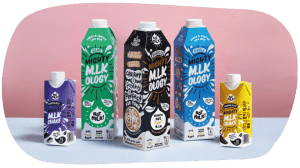
We also have a tasty range of lean, low calorie, vegan protein shakes. There are two yummy flavours - Chocolate and Banana and Oat – and both are rich, creamy, dairy-free milkshake alternatives. These are protein monsters too, with 11g of high quality plant protein crammed into every carton.
Alternatively, we have a plant based protein powder which give 20g of plant protein in each serving.
Want to see and taste some for yourself? Drop into www.mightydrinks.com have a good old nosey around and get ordering!
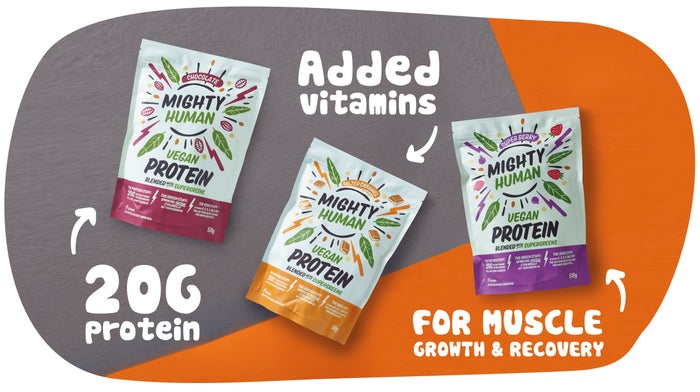

With over 40 years in the business, Jamie Hudson is one of the most experienced copy and content writers in the UK. He has worked both in-house and freelanced for a variety of digital, content, advertising, marketing and design agencies around the country. He’s written websites, blogs, email campaigns, social media, ad campaigns, brochures, TV and radio commercials and all kinds of marketing materials for a wide range of high street names.
These include Asda, Argos, Fox’s Biscuits, Aunt Bessie’s, Dolmio, American Express, RSPB, English Heritage and the Woodland Trust.
References:

Related Articles
